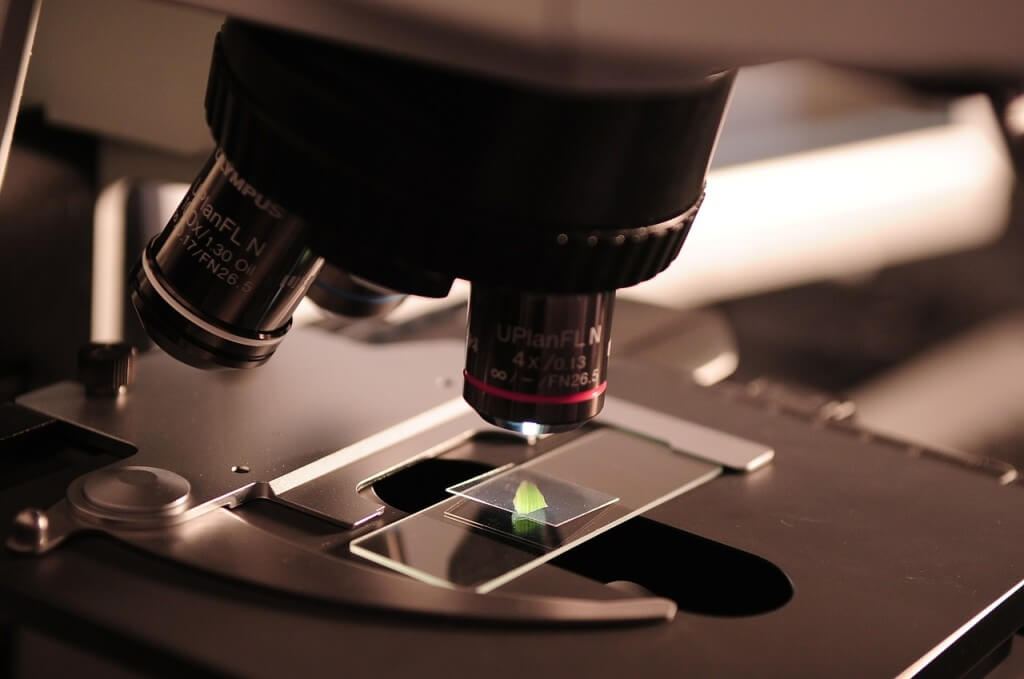Biology majors spend so much time in lab they often develop a codependent relationship with the cells they’re testing. As some B.S. students enter into the workforce, fall in love, make children and renew their vows, others are still not quite doctors yet. You’ve been alive since birth and you’re thinking maybe it’s time to start figuring out how.
What You’ll Be Doing

The purview of biology is so broad, successful majors must motivate themselves to choose a concentration like virology or genetics or even get as specific as neuromuscular junction (the connection of nerves and muscles). Research-oriented students should get into a lab their sophomore or junior year to get experience with the specialized research of graduate students. Like the major, job prospects are equally as diverse. You could study food science, treat cancer or go door-to-door selling used ultrasound machines (real job btw). Regardless of your focus, the distance between you and your career is generally measured in reams of exams. Each biology alumni I spoke to seemed to be in, gearing up for, or taking a break from school.
Upsides

- “Biology courses build on previous classes, which requires you to incorporate new material into the framework you’ve already built. Working in lab groups throughout your entire collegiate career helps develop teamwork and communication skills. Even if I weren’t using my biology major, I’d still have a set of skills essential to succeeding in any professional environment.” – Mike Anderson, Virginia Tech Class of 2014, Orthopedic Technician
- “Exams helped me learn how to manage my time wisely, but I grew most from my extracurricular experiences. I worked at Mass General Hospital on the suicide hotline with people literally about to kill themselves; I had to remain cool and collected and really listen to what they were trying to tell me. I learned how to communicate and empathize in a high-stress environment.” – Sal D’Amico, Boston College Class of 2015, Clinical Research Associate
- “It’s actually good to get exposure to stress in school, because it’s what you’re going to encounter in the real world, especially if you’re a doctor. You have to be confident in what you’re doing and the decision has to be the right one.” – Sarah Yeates, Boston College Class of 2014, Patient Care Coordinator
Downsides

- “Labs, labs and more labs. You spend the most time in lab or doing work for lab for the least possible amount of credit. Also, biology is so big it encompasses everything from pre-vet to pre-med to exclusively research. Sometimes you take classes you feel like you’ll never use again.” – Mike Anderson, Virginia Tech Class of 2014, Orthopedic Technician
- “Everyone gets in peoples’ business. With so many pre-meds it was very competitive and so annoying. There were those kids who’d get a 93% and be upset and I’d get an 85% and be absolutely content. After every exam they’d ask, ‘What did you get?’ What are we, in middle school?”– Sal D’Amico, Boston College Class of 2015, Clinical Research Associate
- “The grades are so low it can knock the wind out of you. Everyone technically fails, but grades are curved around the class average, which means so is your happiness.” – Sarah Yeates, Boston College Class of 2014, Patient Care Coordinator
Career Opportunities

Get Your PhD
The opportunities and salaries for biologists with Masters’ or PhDs dwarf those of graduates who only have a Bachelor’s degree. Doctoral research, however, has become more of a gamble than ever before. The oversaturation of PhDs in America’s system of higher education means that for every PhD doing independent academic research there are nine others supplying campuses with cheap and overqualified labor. But still, think about how wonderful that shiny diploma will look on your wall.
Lobbyist
Lobbying isn’t inherently evil. While the NRA may be trying to put more guns on college campuses, if you work for a group like the AAMC (Association of American Medical Colleges), your positions are difficult to oppose. On April 30, 2015, the AAMC addressed the projected doctor shortage of the coming decade by promoting a bill that allows teaching hospitals to increase their capacity for residency training. It’s easy to scoff at the NRA for seemingly trying to arm troubled students, but it takes several days to find someone willing to march around the AAMC yelling, “No more doctors!” And you can start with just a Bachelor’s.
Technician
Often under the supervision of MDs and PhDs, biological technicians are like contractors that follow a doctor’s blueprints. As an orthopedic technician, Anderson directly assists orthopedic surgeons in the clinic by doing the (actually fun) dirty work: removing sutures and staples, applying braces and teaching stretches. Entry-level positions only require a Bachelor’s degree, and while the median pay hovers around $40,000 per year, being a technician is a great way to gain experience and cash for medical school.
Nutritionist
If you’d rather work with people than with vials of their blood, consider a career in nutrition. Apart from all the yelling and coercion, Jillian Michaels of Biggest Loser fame gives a good sense of what nutritionists do: help patients plan healthy menus, observe their results and provide motivation to keep patients on track. If you’re seeking to become a nutritionist, you’ll need to earn the Registered Dietitian Nutritionist (RDN) and Registered Dietitian (RD) credentials by passing a national exam and completing a practice program. If you take a real interest in food, consider becoming a nutritionist – unless that interest is strictly reserved for eating entire sleeves of Oreos in a single sitting, in which case consult a nutritionist.
Medical Device Salesperson
If you’re sociable and ambitious, maybe sales is right for you. Corresponding with the size of your company, you could need to familiarize yourself with dozens of products or just two. D’Amico works for a medical device company in Boston called Respiratory Motion that sells systems that monitor and assess a patient’s respiration. The diversity of responsibilities at a medical device company means you could be engineering, selling or improving the products, like D’Amico. Competition is fierce, but there’s cash to be had: $50,000 for sales and more than $100,000 for R&D.



















